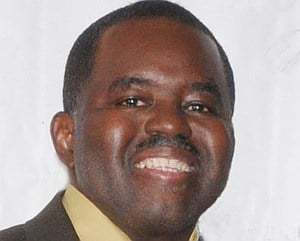According to the 2016 Census, there are 46.1 million Black people in the United States. This figure could be argued, and analyzed, but this is a starting point. There are 325 million people in America, and based on these numbers, Black folks make up about 14.9% of the country.
The Black American population is not a monolithic community that operates from one particular ideology or one political point of view. There is not a single voice, but there is a broad spectrum of leaders, who have a public face in and out of the media. These public faces speak for diverse groups of African Americans and they agree on certain fundamental principles.
Basketball great Kareem Jabbar said, ”However, they do have a nearly unanimous voice when it comes to believing that there are institutional injustices aimed at them as a group.”
To start with, Black leaders are on many different levels. Black political leadership begins on the local level, in the neighborhoods, in the schools, at the churches, in community meetings, these decisions are critical, and they speak to our needs.
On the local level, there is no key player to represent the Black perspective, because there are a hundred issues that must be addressed. All of these leaders speak for Black people, and this is the state of Black leadership in 2017.
Many will ask the question, if these leaders are figureheads, but many of these individuals have worked in their position for thirty years, and never asked for a six figure salary. Many of them work seven days a week, and their days last 14 to 16 hours. Some Blacks are looking for another Malcolm or Dr. King, but the struggle has transitioned to a deeper and lifetime commitment.
There are Black political leaders in the cities, counties, nationally, and international level, and every day they are working for the liberation of Black people. But somehow there is a disconnect, between our leaders, our communities, and around the world. This must be fixed and corrected.
In 2017 and beyond, the Black political leadership has a responsibility to operate with integrity and courage around an agreed Black Agenda that is disseminated through the Black media. Getting out the Vote must be a pivotal piece of the plan, and Black political power must be restored to Black people in their communities.
“What remains clear, however, is that the concept of Black leadership must change right now. It must be decentralized, so that all of us are carrying the weight, instead of waiting for a small group of people to get everything done,”says noted educator Dr. Boyce Watkins.
Everywhere you look in the Black community, there is Black political leadership, and someone is a fan and a follower. Some have a small following and others may head up a 50,000 organization, but they are all leaders.
It is time to merge the new digital social media with the old school warriors, and the Black media. Our Black leaders must support clear, transparent, and orderly lines of communication and work together to address our issues. Galvanizing the different Black organizations old and new to work together collectively is the challenge in our community in 2017
Reclaiming our moral authority, faith, and social justice is the standard that all Black leaders must stand on. Black political leadership is alive, and all of us must do our part to make our contribution. No one person or one Black organization will lead 46 million Black folk to the Promised Land.
But it is time to rededicate ourselves to Black political leadership and a Black Agenda that is pragmatic and speaks to our needs and issues. All of our leaders are significant, and they have endured the test of time, and the list continually grows with new additions every day.
“You must be the change you wish to see in the world.”– Mahatma Gandhi.
Author Profile


